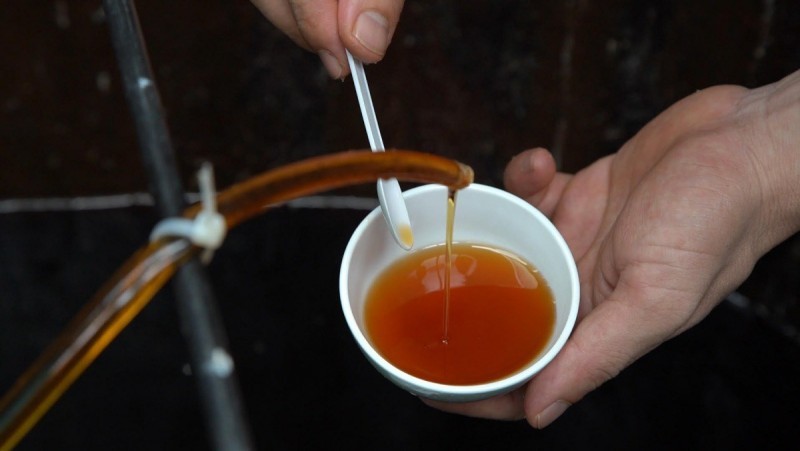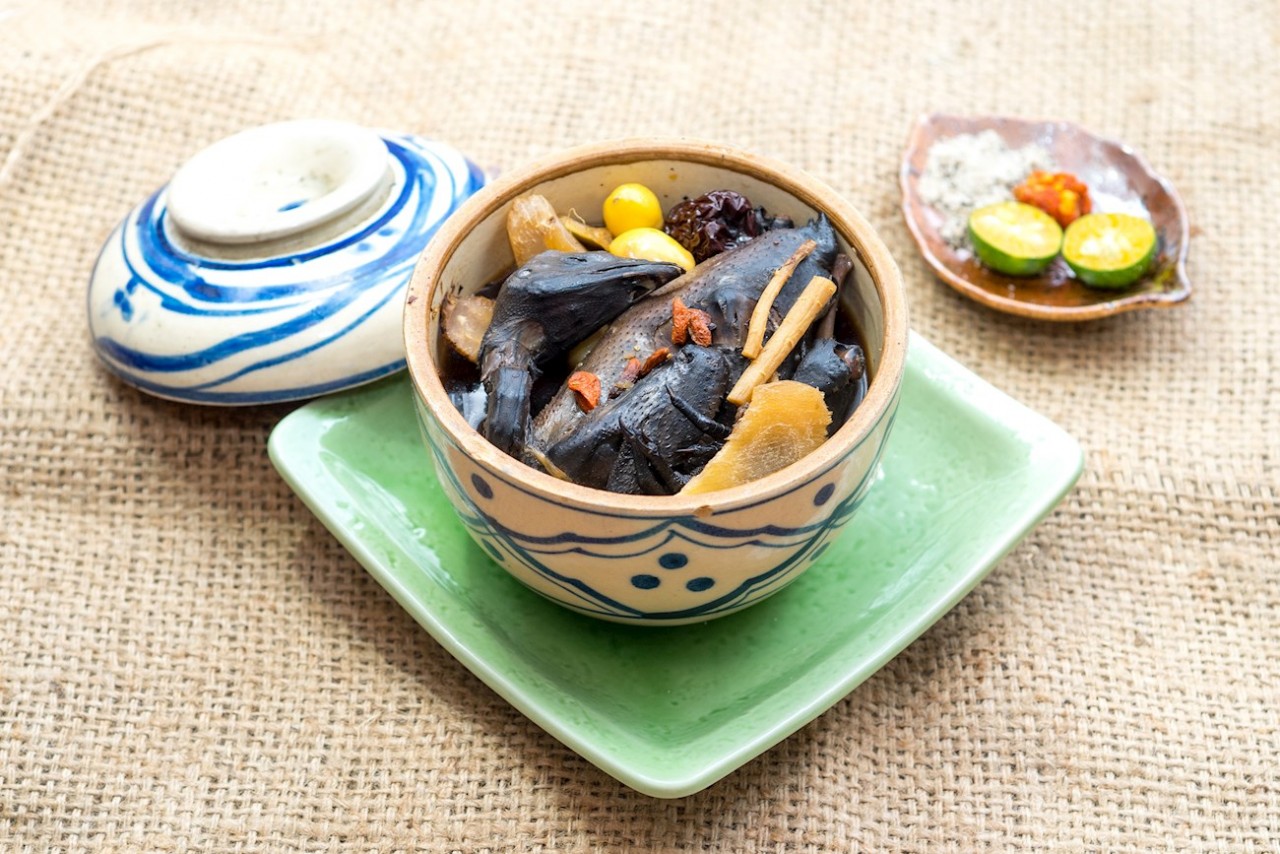Do bitter foods really boost health?
Bitter foods like kale, artichokes and arugula are not only packed with nutrients, but they’re also excellent for gut health, appetite and digestion. Used for centuries in traditional medicine, emerging new research has also started to confirm the gut-boosting benefits of these powerful superfoods.
So what are bitters, and how can they impact your health? Here’s what you need to know and why you may want to start stocking up next time you hit the grocery store.

Bitter grounds.
What Are Bitter Foods?
Although bitter foods may not rank as the most popular or flavorful ingredients in a blind taste test, they are certainly some of the most nutritious. Bitter foods, sometimes referred to simply as “bitters,” are foods that activate the bitter taste receptors. They are associated with an extensive array of health benefits.
Traditionally, bitter foods, such as greens, roots and herbs, were brewed into tonics. They were served after a large meal to help stimulate digestion and provide comfort and relief. Plus, in many forms of holistic medicine, bitter foods have long been revered for their powerful medicinal properties.
For example, bitter and astringent foods in Ayurveda are recommended to help provide balance for those with a pitta or kapha dosha. They are also thought to act as natural diuretics to prevent bloating, decrease water retention and support regularity.
Meanwhile, bitter foods in Traditional Chinese Medicine are believed to counteract heat and reduce the buildup of body fluids. They’re also used to promote the health of the small intestine and heart. However, keep in mind that they should be used in combination with all five flavors — including sweet, sour, salty and pungent — to maintain balance in the body.
In recent years, research has turned up a wealth of new evidence to support the inclusion of bitter foods in the diet. In fact, recent studies now confirm that bitter foods can enhance digestive health, sharpen the appetite, aid in the prevention of leaky gut syndrome, optimize nutrient absorption, improve the gut microbiome and more.
5 Benefits of Bitter Foods

Dandelion greens.
1. Promote Healthy Digestion
For centuries, people have used used bitter foods for digestion, serving them as digestive tonics to finish off a feast or round out a large meal. Interestingly enough, emerging research suggests that bitter foods can help stimulate the secretion of saliva and stomach acid to aid in healthy digestion. Some also use bitter foods to stimulate bile, a fluid produced by the liver that works to break down and digest fats.
Not only that, but upping your intake of bitter foods may also increase the production of digestive enzymes. Digestive enzymes are responsible for the digestion and absorption of many key nutrients in the body. This can ensure you get the most bang for your buck in terms of nutrition while also optimizing your overall diet.
2. Maximize Nutrient Absorption
By boosting the synthesis of digestive enzymes in the body, adding bitter foods to your diet can help maximize the absorption of several key vitamins and minerals that are essential to health, such as calcium.
It can also aid in the prevention of malnutrition and protect against common nutritional deficiencies in vitamins and minerals, such as iron, vitamin B12, calcium, magnesium and iodine. Not only can this have far-reaching effects on just about every aspect of health, but it can also help bump up energy levels to keep you feeling your best all day long.
3. May Help Prevent Leaky Gut
Leaky gut syndrome is a condition characterized by increased intestinal permeability. This allows toxins, bacteria and food particles to cross from the digestive tract to the bloodstream. It can lead to a number of different leaky gut symptoms, from chronic inflammation to fatigue, weight gain, skin issues and digestive problems.
Although there are many different potential causes of leaky gut, nutritional deficiencies are one of the most common triggers, right alongside other problems, such as impaired gut health. Adding a few servings of digestion-boosting bitter fruits and veggies into your daily diet may help protect and preserve intestinal permeability to reduce the risk of leaky gut. They also make great additions to a leaky gut diet treatment plan.
4. Enhance Appetite
In addition to improving digestion, some research has found that bitter foods may also help sharpen and enhance the appetite as well. In fact, studies show that activating the bitter taste receptors may stimulate the secretion of ghrelin, the main hormone responsible for producing feelings of hunger.
What’s more, one review published in Evidence-Based Alternative and Complementary Medicine noted that eating bitter foods could also help stimulate appetite by increasing blood circulation in the abdominal organs and enhancing the activity of specific nerves that control taste.
5. Boost Microbiome
Nestled inside your digestive tract is a complex community composed of trillions of microorganisms that control nearly every aspect of health, from immune function to disease prevention and beyond.
Almost all of the foods that make the bitter vegetables list are high in prebiotics. Prebiotics are specific types of fiber that provide energy for the beneficial bacteria in your gut. When combined with a nutritious diet and healthy lifestyle, getting in your daily dose of bitter foods can bring big benefits when it comes to your microbiome and can ensure you supply your healthy gut bacteria with the fuel that it needs to thrive.

Stir-Fry Bitter Melon With Pork.
Top 20 Common Bitter Foods
Bitters are widely available in concentrated capsule, tonic and extract form. However, selecting whole food sources over supplements can be especially beneficial and help supply a wider range of important vitamins, minerals and other key nutrients to support better health. Plus, they’re also more bioavailable, meaning that they’re more easily absorbed within your body.
In general, leafy greens, citrus fruits, and certain herbs, spices and veggies are considered the top bitter foods. Not only do they come with digestion-boosting benefits, but they’re also loaded with a long list of essential nutrients as well. Here are a few of the top bitter foods to consider adding to your diet:
Apple cider vinegar
Artichoke
Arugula
Bitter melon
Broccoli rabe
Brussels sprouts
Chicory
Coffee
Cranberries
Dandelion greens
Dark chocolate
Dill
Eggplant
Enpes
Ginger
Grapefruit
Kale
Mint
Saffron
Sesame seeds
Precautions
While upping your intake of bitter foods can definitely be beneficial, adding a few servings of kale or arugula into your diet is unlikely to make much of a difference in your health if it’s not paired with a balanced diet and active lifestyle. For best results, enjoy these foods alongside a good variety of other fruits, veggies, whole grains, lean proteins and nutritious fats to maximize the potential impact on health.
Additionally, keep in mind that most bitter foods are also high in fiber. While fiber is absolutely essential when it comes to your digestive health, it can also cause some unpleasant side effects if you increase your intake too quickly. Start out slow and slowly add more high-fiber foods to your diet to assess your tolerance. Be sure to also increase your water consumption to keep things moving and promote regularity./.
According to draxe.com
Recommended
 Handbook
Handbook
Vietnam's Fish Sauce Tops World's Best Dipping Sauces
 Handbook
Handbook
Four Vietnamese Universities Feature Among Asia's Top 200
 Handbook
Handbook
Water Puppet Show To Be The Highlight of Vietnam Day in Brazil
 Handbook
Handbook
Taste Atlas: Vietnam’s Fish Sauce, Fermented Dish Sauce Among World’s Best Dipping Sauces
 Handbook
Handbook
TasteAtlas: Four Vietnamese Dishes Among World’s 100 Best Dishes With Ginger
 Handbook
Handbook
Free Tickets to Taiwan Film Salon 2024 in Hanoi
 Handbook
Handbook
Ben Tre Delicacy Garners International Recognition
 Handbook
Handbook
